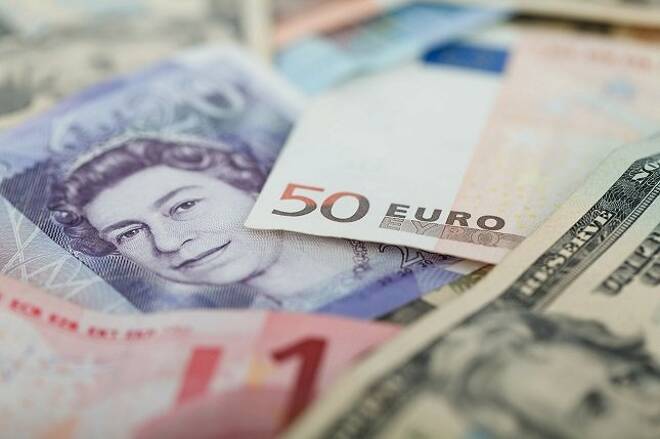Advertisement
Advertisement
Merkel’s Narrow Victory Weighs on the Euro
By:
European stock markets mostly down, DAX outperforms. The German DAX is managing slight gains in the wake of the German election result, which will see
European stock markets mostly down, DAX outperforms. The German DAX is managing slight gains in the wake of the German election result, which will see Merkel remaining in office, with the return of the liberal FDP welcomed by many in the business community even though the need to cooperate with the Green Party will make this a somewhat awkward alliance. The EUR dipped on the result, which is helping the DAX to outperform the FTSE 100, which is down slightly as Sterling strengthened. The weaker EUR is doing little for other Eurozone stock markets, however, and the Spanish IBEX continues to underperform amid the ongoing controversy between Madrid and Barcelona over Catalonia’s bid for independence. U.S. stock futures are also down after a largely negative session in Asia. Japanese stocks gained as the yen declined on speculation of another stimulus package alongside the expected snap election.
Moody’s downgraded its UK sovereign rating by one notch to Aa2, from Aa1. The agency said that the government “has yielded to pressure and raised spending,” and that revenues were unlikely to compensate. Moody’s said that leaving the EU is generating uncertainty at a time when government debt reduction plans were already off course, and that “any free trade agreement will likely take years to negotiate, prolonging the current uncertainty for business.” Moody’s said that the government’s failure to win a majority at the election in May “further obscures the future direction of economic policy,” and that Brexit will dominate legislative priorities, which will limit the government’s capacity to address “substantial” challenges.
Preliminary official results for Germany’s new parliament give Merkel’s CDU/CSU 246 of 709 votes, the SPD is trailing far behind with just 153 votes. In theory that would make a renewal of the grand coalition possible, but the SPD has already declared that it doesn’t want to be Merkel’s junior partner yet again. Merkel’s alternative is a coalition with old ally the liberal FDP (80 seats), and the Green Party (67 seats) – the so called Jamaica flag coalition (CDU/CSU – black, FDP – yellow, Green Party – green). A possibility that has been widely flagged ahead of the election, but that will bring its own problems and likely require lengthy coalition talks, especially as Merkel’s CDU is reliant on its Bavarian sister party CSU, which is desperate to win back the voters on the right, which defected in large numbers to the AfD.
German Business Confidence Unexpectedly Declined
German Ifo business confidence unexpectedly fell back to 115.2 from 115.9, against expectations for another improvement after the surprisingly strong PMI readings. The forward-looking expectations reading eased to 107.4 and the current conditions indicator dropped to 123.6 from 124.7. Still very high readings, consistent with ongoing robust growth in Germany and the Eurozone. The Ifo rose to 115.7 in Q3 from 114.3 in the previous quarter, which squares with Markit’s assessment that PMI readings point to an acceleration in overall Eurozone GDP growth to 0.7% quarter over quarter in Q3. Still, the numbers highlight again what has been apparent for some months, that PMI and Ifo are out of synch when it comes to short-term trends.
About the Author
David Beckerauthor
David Becker focuses his attention on various consulting and portfolio management activities at Fortuity LLC, where he currently provides oversight for a multimillion-dollar portfolio consisting of commodities, debt, equities, real estate, and more.
Advertisement
